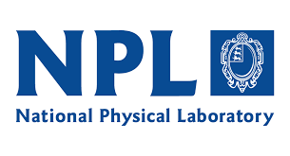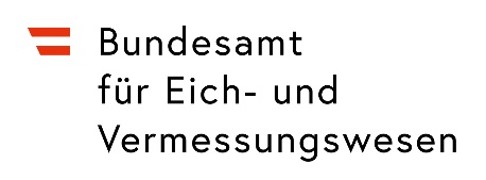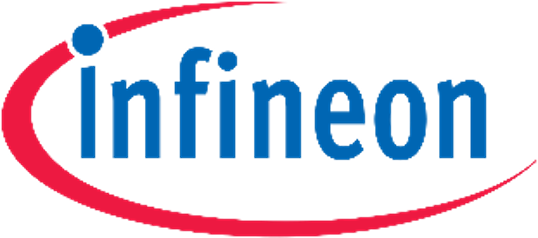The Consortium

NPL, the UK's National Metrology Institute (NMI), has world leading expertise and state-of-the-art facilities for electrical and near-field optical scanning probe microscopy, compressed sensing and data fusion, which will be used for advanced defect identification, fast, large-area optical characterisation and implementation of hybrid metrology activities, respectively. NPL leads international pre-normative (e.g. VAMAS) activities, and coordinated multiple previous EMPIR projects, including HyMet 16ENG03, which pioneered the hybrid metrology paradigm for thin films that this project builds on. NPL will coordinate the project and lead WP2.

BAM operates one of Europe’s leading research labs for spectroscopic ellipsometry delivering applied and methodological research as well as services to industrial customers with challenges in the field of surface and thin film technology. They made important contributions in developing traceable and accurate ellipsometry measurements within recent years resulting in several standard documents. BAM is convenor of ISO/TC 107 JWG 4 and DIN/NA-062-01-61. BAM will perform metrological ellipsometry measurements on the WBG samples and develop models for interpretation of the data.

BEV-PTP as the Austrian NMI has expertise in different electrical measurements that can be used to characterise semiconductor devices: traceable DC and AC current and voltage measurements. BEV-PTP will develop a new capability for dynamic current measurements, including current switching transients and long-term measurements of semiconductor devices at elevated temperature in a climate chamber.

CMI, as the Czech NMI has expertise in complex data processing in SPM, data fusion and uncertainty evaluation, and have been major contributors to open source software tools e.g. Gwyddion (general SPM data processing package) or Libgwyscan (library for adaptive scanning in SPM). CMI will perform KPFM measurements and develop a tip-sample interaction model for quantification of data, as well as contributing to the development of advanced sensing and reconstruction methods. CMI will lead WP3.

PTB, as the German NMI, is internationally recognised for their expertise in optical measurement and data analysis, notably in scatterometry ellipsometry, nanometrology, inverse problems and hybrid metrology. In this project, PTB will develop both wafer-scale (optical scatterometry, spectroscopic ellipsometry) and nanoscale (nearfield spectroscopy) measurements. PTB will investigate and validate correlations between local scanning probe and ensemble spectroscopic-optical scattering defect metrology. PTB will lead WP1.

TUBITAK, the Scientific and Technological Research Council of Turkey, consists of research institutes with a broad set of technical fields including dimensional metrology and nanostructured materials. They will provide ellipsometric measurements of samples using their custom-built fast spectroscopic ellipsometer for wafer mapping, as well as contributing to the metrological development of models and analysis tools to support measurements by BAM and PTB. Nanostructured reference samples will be prepared in-house to support validation of defect identification using ellipsometry.

AIXTRON SE manufactures custom MOCVD systems for enabling development and manufacture of compound semiconductors, with a market share of more than 50 % for III-V semiconductor device production. AIXTRON has extensive expertise in the development of MOCVD equipment based on customer requirements and experience with hetero-epitaxy of III-V compound semiconductor structures, heterojunctions, LEDs and transistors. AIXTRON will manufacture and provide pre-characterised high-quality GaN and SiC wafers to the consortium as reference materials and provide industrial knowledge transfer. AIXTRON will lead WP5.

CSC is a joint venture between IQE plc and Cardiff University founded in 2015 to underpin the creation of a unique global capability for emerging technologies based on Compound Semiconductor materials. CSC offers collaborative research and innovation services based on the development of compound semiconductor materials, as well as commercial supply of novel and early stage materials and structures centred on MOCVD epitaxial growth. CSC has particular interest in GaN-on-Si and GaN-on-SiC for high performance RF and power electronics. In this project, CSC will provide GaN wafers, and prepare and test devices to correlate electronic performance with the defect density. CSC will lead WP4.

Leibniz Institut für Kristallzüchtung (IKZ) is a unique research institution in Europe with the mission to explore the scientific and technological fundamentals of crystal growth, from basic research to pre-industrial development. IKZ has significant expertise on MOVPE (metal organic vapor phase epitaxy) deposition of homo-epitaxial ß-Ga2O3 layers. In this project, IKZ will manufacture and provide ß-Ga2O3 samples to the project and conduct electrical characterisation of film and bulk material, which is key to relate structural defects to device performance.

CEA hosts the Nano Characterization Platform focused on developing new physico/chemical characterisation techniques across a range of scientific fields, including micro/nanotechnology. They combine state of the art facilities, including KPFM, CL and micro-PL, with expertise on growth and characterisation of compound semiconductors. In this project they will develop and demonstrate combined KPFM/CL measurements including an interlaboratory study of KPFM repeatability. CEA will also prepare GaN samples for these measurements and perform electrical characterisation.

TU Delft has expertise in innovative inspection metrology for next-generation lithography and surface inspection using optical techniques. They have implemented scatterometry methods for contamination detection of particles below 100 nm on wafers, glass and plastic substrates, as well as successfully implementing a technique for critical dimension characterisation of subwavelength gratings. In this project TU Delft will develop and demonstrate a high-speed scatterometry system for wafer-scale defect inspection and collaborate with partners on the development of hybrid metrology techniques.

TU WIEN The group of Microsystems Technology delivers world leading research devoted to SiC-related technologies such as oxidation, porosification and poly-SiC thin film deposition and maintains a close relationship with several industrial partners for knowledge transfer. In this project TU WIEN will develop and optimise SiC oxidation processes for device applications and provide samples for partners to use in developing and demonstrating novel metrology for nanoscale defect characterisation.

Infineon is a world leading manufacturer of SiC semiconductor devices and strives for continuous improvements in manufacturing requiring accurate detection of defects and their sources. Infineon will provide SiC samples (large wafers and smaller samples) for the demonstration and validation of defect detection metrology. Infineon will also provide packaged devices for lifetime measurements and knowledge transfer from the industrial perspective, including expertise in the requirements of industrial wafer fabrication and the integration of metrology tools into the industrial context.

